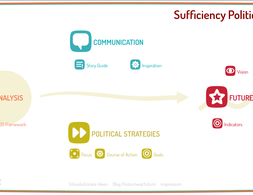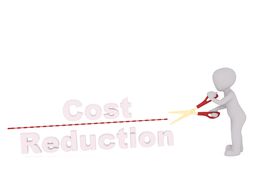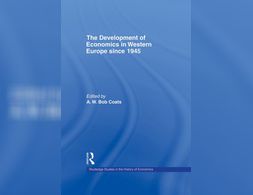382 results
This book highlights the political economy of wealth and income inequality in Latin America. The author segments his analysis to separately evaluate the economic, social, and political costs of inequality building on country case studies. It draws well-contextualized lessons from the Latin American experience that is important to consider for other regional contexts, especially for social policies of nations within the 'Middle Income Trap'.
The Sufficiency Policy Map is an online tool for initiatives, political actors, organisations and individuals. It provides recommendations, strategies and communication tools for realizing projects and policy around the topic sufficiency. Sufficiency projects have the aim to reduce one's own ecological footprint.
"Revisitons quelques crédos économiques dominants qui prévalaient à la veille de la crise de 2008. On prend alors toute la mesure de la fragilité des dogmes"
This course introduces students to political economy and the history of economic thought. We will cover the core ideas in various schools of economic thought, positioning them in the historical and institutional context in which they were developed. In particular, we will cover some economic ideas from the ancient world and the middle ages; the enlightenment; the emergence of and main ideas in classical political economy (Adam Smith, David Ricardo, Thomas Malthus, and others); Marx, Mill, and Keynes; European versus American economic thought through history; the rise of mathematical economics; economic theories around state-managed economies versus socialism; Austrian economics; behavioral economics; and the future of economics.
This edited volume explores how dependency theories can be adapted and applied to understand limits and possibilities for development in Latin America and Europe It explores core periphery relations across different sets of countries specific mechanisms of dependency as well as the role of race and gender in dependency analysis …
This essay draws on several analyses on the gender impact of the recession and of austerity policies, in which authors acknowledge a threat to women’s labour market integration and a potential backlash to traditional gender labour structures. We contribute to that literature by asking whether recession and austerity convey a gender effect on educational attainment. Our aim in this essay is to portray the likely effects of austerity measures on gender equality with a focus on women’s participation in tertiary education and to hypothesize the implications of these scenarios for labour market effects, to be tested in future empirical research.
This paper starts with an evaluation of three common arguments against pluralism in economics: (1) the claim that economics is already pluralist, (2) the argument that if there was the need for greater plurality, it would emerge on its own, and (3) the assertion that pluralism means ‘anything goes’ and is thus unscientific. Pluralist responses to all three arguments are summarized. The third argument is identified to relate to a greater challenge for pluralism: an epistemological trade-off between diversity and consensus that suggests moving from a discussion about ‘pros’ and ‘cons’ towards a discussion about the adequate degree of plurality. We instantiate the trade-off by showing how it originates from two main challenges: the need to derive adequate quality criteria for a pluralist economics, and the necessity to propose strategies that ensure the communication across different research programs. The paper concludes with some strategies to meet these challenges.
One hundred years ago the idea of 'the economy' didn't exist. Now, improving the economy has come to be seen as perhaps the most important task facing modern societies. Politics and policymaking are conducted in the language of economics and economic logic shapes how political issues are thought about and addressed.
The 2007-2008 financial crisis exposed the shortcomings of mainstream economic theory with economists unprepared to deal with it. In the face of this, a major rethinking of economics seems necessary and in presenting alternative approaches to economic theory, this book contributes to the rebuilding of the discipline.
From Marketisation to Armed Conflict Since 1991 nominally independent Ukraine has been in turmoil with the Orange Revolution and the Maidan protests marking its most critical moments Now its borders are threatened and the civil unrest and armed conflict continue to destabilise the country In order to understand these dramatic …
As the world's energy system faces a period of unprecedented change, a global struggle over who controls the sector--and for what purposes--is intensifying. The question of "green capitalism" is now unavoidable, for capitalist planners and anti-capitalist struggles alike.
The book critically engages with various Marxian perspectives on the dynamics on development and social progress It specifically engages with some key words in Marxian theory including Marx s early work on capitalist development and his later works on underdeveloped Russia Lenin s thesis on imperialism as a hurdle for …
L’économie évolutionniste se focalise sur le changement économique. En conséquence, sont analysés des processus de changement tels que la croissance, l’innovation, le changement technologique et structurel, ou encore le développement économique en général. L’accent est mis sur les populations et les (sous-)systèmes.
L’économie de la complexité se focalise sur les interactions et les interdépendances entre les individus et les structures dans les systèmes économiques. L‘économie est vue comme un système complexe qui est toujours dans un état de flux, c‘est-à-dire évoluant et changeant en permanence.
An essay of the writing workshop on Nigeria’s Readiness for and the Effect of the Fourth Industrial Revolution
An essay of the writing workshop on contemporary issues in the field of Nigerian economics: Labour and all the dynamics, such as laws, mobility, gender participation, regulation etc., that are associated with it cements the need for this paper which seeks to objectively review, analyse, and if deemed necessary, give plausible recommendations.
An essay of the writing workshop on contemporary issues in the field of Nigerian economics: The adverse effect of climate change is overwhelming, not just in Nigeria but globally. Global warming is the result of hostile human activities that have impacted the environment negatively. This is the principal variable the government should tackle through practical innovations such as the acceptable implementation of Adaptation Policies and also through the adequate implementation of environmental tax. These will enhance pro-environmental behaviour which is fit for socio-political and economic activities for sustainability.
Austrian economics focuses on the economic coordination of individuals in a market economy. Austrian economics emphasises individualism, subjectivism, laissez-faire politics, uncertainty and the role of the entrepreneur, amongst others.
How can we establish new institutions and practices in order to use fare-free public transport as a beacon for sustainable mobility and a low-carbon lifestyle? The author of this essay elaborates on how practice theory and institutional economics can help to answer this question.
As seen with the United Nations significant promotion of the Sustainable Development Goals (SDGs) in the past few years, the issue of global development is of growing concern to many international organizations. As humanity continues to become more interconnected through globalization, the inequalities and injustices experienced by inhabitants of impacted countries becomes increasingly clear. While this issue can be observed in the papers of different types (e.g., different schools of thought) of economists throughout the world, the work of behavioral and complexity economists offer a unique, collaborative perspective on how to frame decisions for individuals in a way that can positively reverberate throughout society and throughout time.
Economics After the Crisis is an introductory economics textbook, covering key topics in micro and macro economics. However, this book differs from other introductory economics textbooks in the perspective it takes, and it incorporates issues that are presently underserved by existing textbooks on the market. This book offers an introduction to economics that takes into account criticisms of the orthodox approach, and which acknowledges the role that this largely Western approach has played in the current global financial and economic crisis.
This article, looks at the complex interaction between an urban economy and the vegetation within that urban area. In summary, numerous studies have found a positive link between increased vegetation and social as well as personal health. It makes a case for increasing urban vegetation as a way to benefit local economies.
MERCOSUR (Mercado Común del Sur or Common Southern Market) was the first formalized attempt to integrate South American countries economically and politically.
What determines the status of women in different communities? What role is played by women’s labor (inside and outside of the home)? By cultural norms regarding sexuality and reproduction? By racial/ethnic identity? By religious traditions? After some brief theoretical grounding, this course will address these questions by examining the economic, political, social, and cultural histories of women in the various racial/ethnic groups that make up the US today.
Are there distinct European traditions in economics? Is modern economics homogenous and American? The volume includes case studies of the UK, Sweden, the Netherlands, Belgium, Germany, France, Italy, Portugal, Spain and Greece.
Approaching the law of nature that determines all forms of economy. The bulk of economic theory addresses the economic process by setting out on a catalogue of aspects, seeking the laws in the aspects and hoping to get together a reliable view of the whole.
This is an overview of (possibly transformative) proposals to address the economic consequences of the corona crisis
Exploring Economics, an open-source e-learning platform, giving you the opportunity to discover & study a variety of economic theories, topics, and methods.
The course will teach students to analyze the goals, implementation, and outcomes of economic policy.
The module is designed to first present some of the main schools of thought from a historical and methodological perspective. Each week we explore and critically assess the main tenants of each school of thought. In the second part of the module we link history of economic thought and methodology to a specific and contemporary economic question. The second part allows you to engage with current economic issues with an awareness of methodology and methodological differences and with some knowledge of the history of economics.
‘We cannot afford their peace & We cannot bear their wars’:
Value, Exploitation, Profitability Crises & ‘Rectification’
Economist and 2020 Balzan Prize winner for Environmental Challenges: Responses from the Social Sciences and Humanities, Joan Martínez Alier, speaks on the importance of ecological economics and its timeliness around the 2007/2008 global financial crisis. He speaks on the importance of building the field of ecological economics “from the ground up” through praxis.
Nous utilisons des cookies sur notre site Web. Cliquez sur Accepter pour nous aider à améliorer constamment Exploring Economics !




























